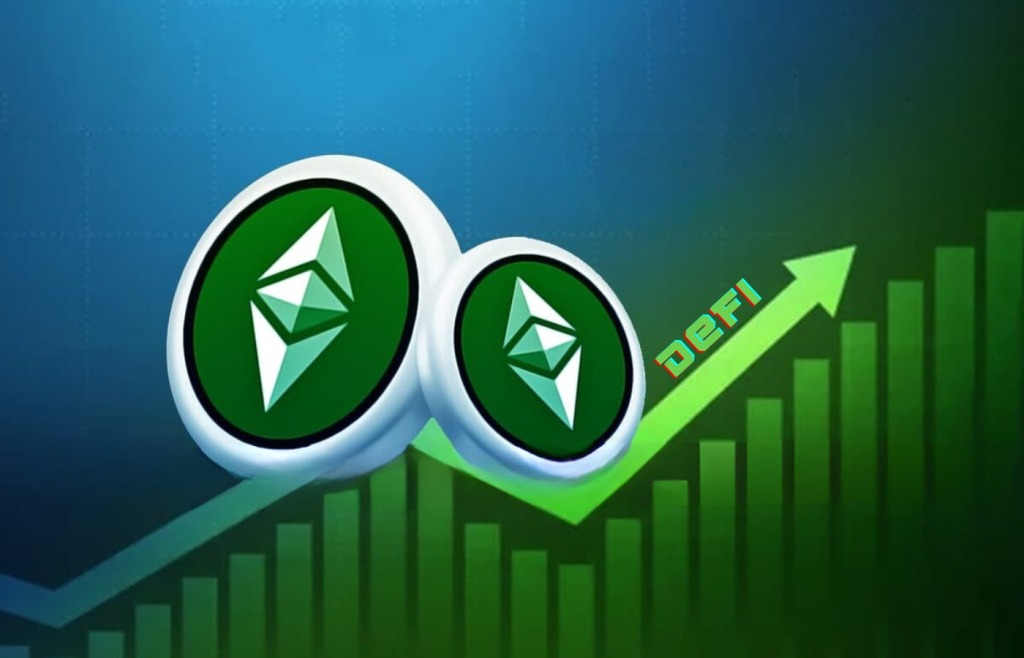
Smart contracts, a revolutionary concept introduced by Ethereum, have transformed the landscape of decentralized finance (DeFi). These self-executing contracts, powered by blockchain technology, enable trustless and automated transactions without the need for intermediaries. As DeFi continues to gain momentum, Ethereum remains at the forefront, serving as the primary platform for hosting a myriad of decentralized financial applications. There is no need to discuss the value of Ethereum as anyone into crypto already knows! Know more at https://ethereumcode-fr.com/ and learn about investing right from the start.
Understanding Smart Contracts
At the core of Ethereum’s ecosystem are smart contracts – programmable contracts that automatically execute predefined actions when certain conditions are met. Unlike traditional contracts, smart contracts are stored on a decentralized blockchain network, ensuring transparency, immutability, and tamper resistance.
Smart contracts are written in Solidity, Ethereum’s programming language, and are deployed onto the Ethereum Virtual Machine (EVM), where they are executed by network nodes. These contracts can facilitate a wide range of functionalities, from simple transactions to complex financial agreements, all without the need for intermediaries.
The Birth of DeFi
The emergence of DeFi can be traced back to the early days of Ethereum when developers began exploring the potential of decentralized applications (dApps) for financial services. Projects like MakerDAO, Uniswap, and Compound pioneered the DeFi movement by offering decentralized lending, borrowing, and trading solutions.
One of the key enablers of DeFi is the use of smart contracts, which allow for the creation of trustless and censorship-resistant financial protocols. By leveraging smart contracts, DeFi platforms can operate autonomously, with users retaining full control over their assets without relying on centralized authorities.
Ethereum’s Role in DeFi Expansion
Ethereum’s flexible and robust infrastructure has positioned it as the leading blockchain platform for DeFi development. The Ethereum blockchain supports a wide range of programming capabilities, making it ideal for implementing complex financial logic within smart contracts.
Furthermore, Ethereum’s large and active developer community has contributed to the rapid proliferation of DeFi projects on the platform. With a plethora of tools, libraries, and resources available, developers can easily build and deploy DeFi applications on Ethereum, driving innovation and experimentation in the space.
Smart Contract Use Cases in DeFi
Smart contracts play a central role in enabling various DeFi applications, each serving a unique purpose within the decentralized financial ecosystem.
Decentralized Exchanges (DEXs): DEXs like Uniswap and SushiSwap utilize smart contracts to enable peer-to-peer trading of digital assets without the need for intermediaries. These automated market makers (AMMs) rely on smart contracts to facilitate liquidity pools and execute trades in a trustless manner.
Lending and Borrowing Platforms: Platforms such as Compound and Aave leverage smart contracts to enable decentralized lending and borrowing of digital assets. Users can collateralize their assets and borrow funds directly from the protocol without the need for a traditional financial intermediary.
Yield Farming and Liquidity Mining: Yield farming protocols incentivize liquidity providers to deposit their assets into liquidity pools by rewarding them with governance tokens or protocol fees. These programs are powered by smart contracts, which distribute rewards based on predefined rules and incentives.
Insurance and Derivatives Platforms: DeFi platforms like Nexus Mutual and Synthetix utilize smart contracts to offer decentralized insurance and synthetic asset trading. Smart contracts facilitate the creation and execution of insurance policies, as well as the trading of derivative products such as synthetic stocks and commodities.
Advantages and Challenges
Smart contracts offer several advantages in the context of DeFi, including transparency, security, and automation (find out more here). By operating on a decentralized blockchain, smart contracts ensure that transactions are transparent and verifiable by anyone with access to the network. Additionally, the immutability of blockchain ensures that smart contracts are tamper-resistant, reducing the risk of fraud and manipulation.
However, smart contracts are not without their challenges. Security vulnerabilities in smart contract code can lead to exploits and hacks, resulting in the loss of user funds. Additionally, scalability limitations on the Ethereum network can impact the performance of DeFi applications during periods of high network congestion.
Future Outlook
Looking ahead, the future of smart contracts and DeFi on Ethereum appears promising. The upcoming transition to Ethereum 2.0, with its implementation of proof-of-stake consensus and sharding, is expected to address scalability concerns and improve the overall efficiency of the network. This will enable DeFi platforms to scale to accommodate a larger user base and handle higher transaction volumes.
Furthermore, ongoing research and development efforts are focused on enhancing the security and robustness of smart contracts, mitigating the risk of potential exploits and vulnerabilities. As the DeFi ecosystem continues to mature, we can expect to see increased innovation and adoption of decentralized financial solutions powered by Ethereum’s smart contracts.
Conclusion
In conclusion, Ethereum’s smart contracts have played a pivotal role in driving the growth and evolution of decentralized finance. By enabling trustless and automated transactions, smart contracts have unlocked a new paradigm of financial innovation, empowering users with greater control over their assets and financial activities. As Ethereum continues to evolve and improve, we can expect to see even greater advancements in DeFi, further cementing its position as the backbone of decentralized finance.
Last Updated: May 8, 2024




















